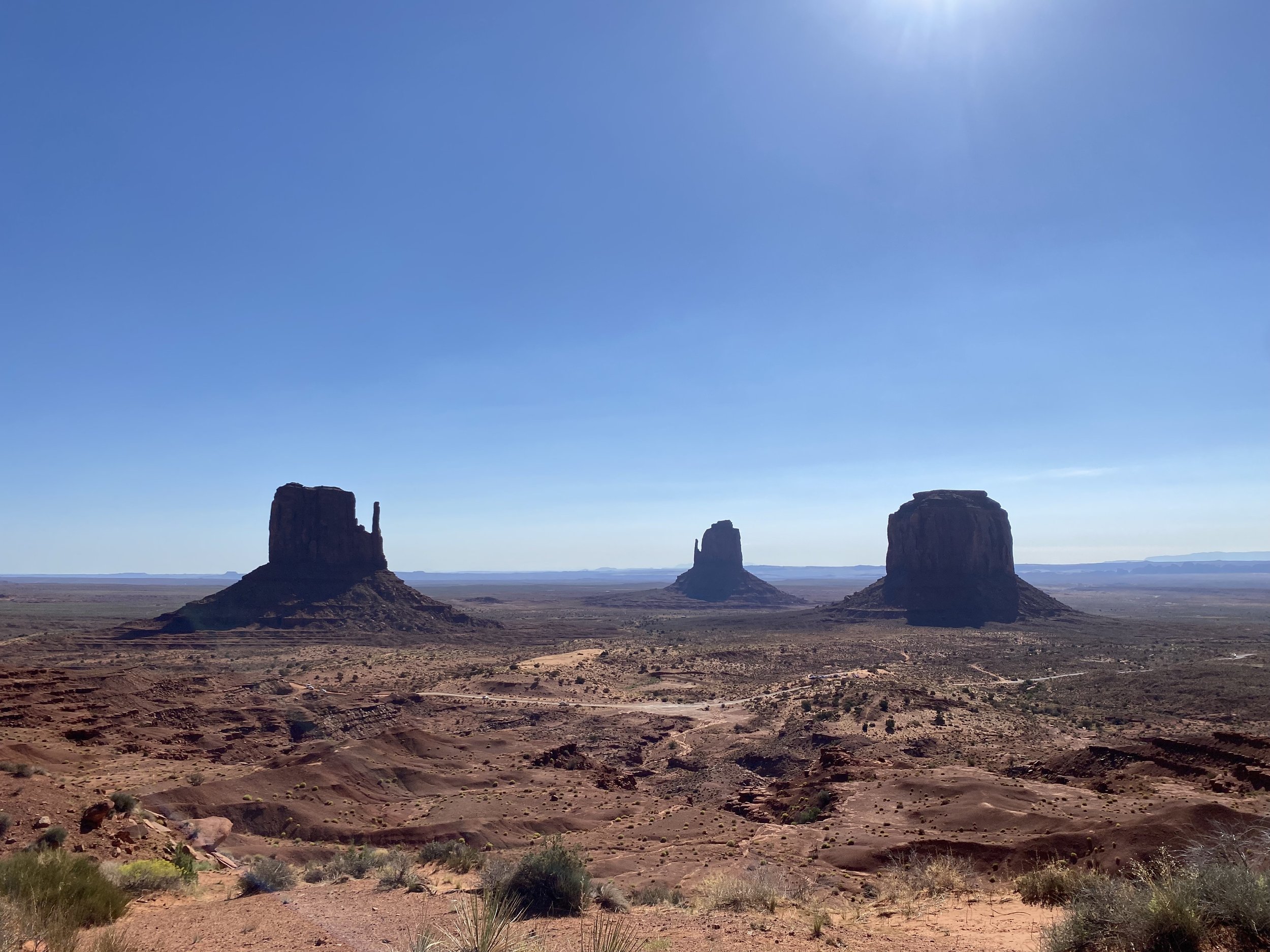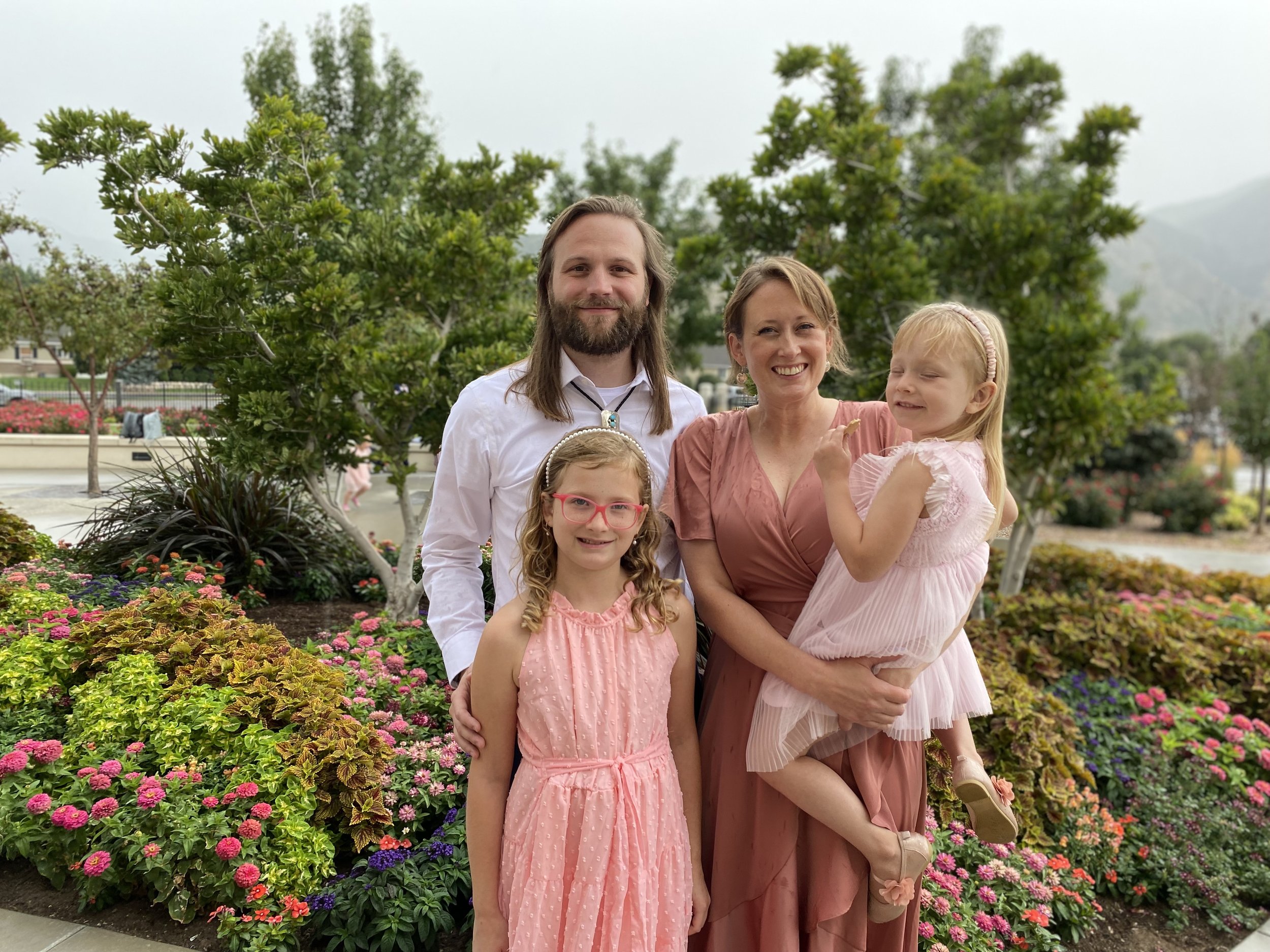
Nathan Tanner
Shí éí Nathan yinishyé. I am bilagáana, and of English/Scottish/Irish/German heritage. I am a former public-school teacher and a current Ph.D. Candidate at the University of Illinois.
Nathan Tanner, M.Ed., ABD
I was raised in Spanish Fork, Utah along the Wasatch Mountain range. As an adult I lived and worked in Salt Lake City, Utah as a public-school teacher. I am married to McKenna Lane and am the father of two little girls.
When I am not working on my research, I enjoy watching baseball, rock climbing, hiking, reading, spending time outdoors with my family, collecting vinyl records, going to the movies, and watching television.
My research is intimately connected to my upbringing, and my professional career where I had the opportunity to work with some Indigenous youth, mostly Diné and Lakota. My interest in researching the Mormon Indian Student Placement Program specifically stems from growing up around it in my hometown, and being familiar with aspects of the program resulting from being raised in the Mormon church. As an adolescent, I had virtually no context for understanding the program’s origins or purposes outside of narrowly tailored narratives from church leaders whom I was taught to revere and trust. As an adult who is no longer affiliated with the Mormon Church, I am determined to reckon with my own colonial, political, racial, religious, and spatial histories. This includes striving to understand the communities and relationships that my personal and wider cultural and religious histories, upbringing, and adult life are entangled with. I want to learn about how myself and the Indigenous peoples with whom I have been working (and hope to have the privilege to get to know) have been shaped by our pasts, but perhaps more importantly how we all can work together in the “now” described so beautifully by Mark Rifkin: The “now” that is “disparate…related to the legacies of historical events and dynamics…is relative…[or that can exist through] recursive forms of inhabitance.” In so doing, I hope to engage in ethical, community-based research, collaboratively develop historical narratives, and work towards constructing liberatory futures grounded in self-determination.
Nathan’s Dissertation Research Project
There is a strong need for further research on the Mormon Indian Student Placement Program, but especially research that centers Indigenous peoples’ experiences, methodologies, and perspectives. Furthermore, there is a need for research that is community-based and treats Indigenous peoples and their histories with an ethic of care. As a white scholar, I recognize that my perspectives are and should be subject to scrutiny. My approach to this project, approved by the Navajo Nation Human Research Review Board, reflects my dedication to listen to and stand in solidarity with racialized subaltern groups in pursuit of an abolitionist, anti-colonial future. I welcome the opportunity to work with Diné communities to contribute to a deeper understanding of the Mormon Indian Student Placement Program.
“History is important for understanding the present and reclaiming history is a critical and essential aspect of decolonization.”
— Linda Tuhiwai Smith, Decolonizing Methodologies: Research & Indigenous Peoples


